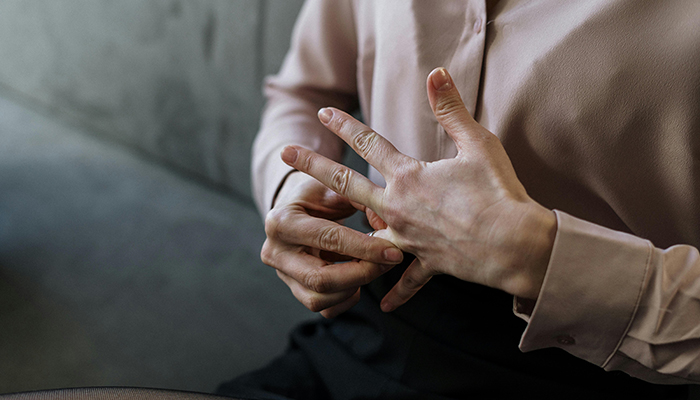Are You Ready to Stop Feeling Guilty After Divorce?
Are You Ready to Stop Feeling Guilty After Divorce?
By Tara Rullo, LCSW
Guilt is a heavy feeling that can arise from specific actions you regret or as a persistent, lingering mist that seeps into every aspect of your life. It often feels like a shadow constantly looming over your shoulder, causing you to doubt your choices, your character, and your future.
For many divorced people, guilt becomes a constant companion in life after the end of a marriage. It can arise from worries about the well-being of children, the impact of the divorce on family and friends, the financial challenges that often accompany divorce, and even the emotional experiences of their ex-partner.
As someone who has gone through a divorce myself, I can say that I’ve felt my fair share of guilt about my marriage ending. The terms associated with divorce, like “failed marriage” and “broken home,” were particularly guilt-inducing for me. These terms played a role in prolonging my ambivalence about acting on the decision to end the relationship, adding to my emotional turmoil.
Unfortunately, even some therapists can put undue pressure on a couple to stay together for the sake of the marriage or the children. In reality, ending a relationship that doesn’t work can often be the most productive choice for everyone involved. It’s important to recognize that sometimes, letting go is an act of courage and self-care, paving the way for healing and growth for all parties.
How to Sit with the Discomfort of Guilt
In the moment, ignoring your guilt or attempting to suppress it might seem like a useful approach. You might think that if you don’t focus on it, it will eventually fade away. However, this isn’t actually true. I can attest to this from personal experience! When I finally spoke to my therapist about the guilt I had been carrying silently since my divorce, it was three years into my post-divorce life. It took me a long time to admit that various forms of guilt plagued me on an almost daily basis.
Like other emotions, guilt that is not addressed can persist and intensify over time, making you feel even worse. While refusing to recognize your guilt might temporarily prevent it from affecting your daily life, this tactic is not a long-term solution. To genuinely deal with guilt, you need to first acknowledge those feelings, no matter how uncomfortable they may be.
Forgiveness, particularly self-forgiveness, is a critical step in overcoming these feelings. We are often generous in offering forgiveness to others—yet might withhold this kindness from ourselves. The truth is, we all deserve compassion from ourselves as well as from others.
Practical Steps to Forgive Yourself
• Challenge Your Guilt: When you notice guilt creeping up on you, challenge it by asking, “How will this guilt serve me in the future?” If you find it difficult to answer this in any constructive way, it’s a strong indication that it’s time to let that guilt go.
• Reflect and Write: Start by writing down your feelings of guilt. For example, if you feel guilty for not initiating couples therapy sooner, counter that thought with, “We sought help when we recognized the need, and we did the best we could at the time.”
• Adopt a Forgiveness Mindset: Change your internal dialogue to be more forgiving. Instead of dwelling on what you should have done, focus on what you did do and recognize that you acted with the knowledge and capacities you had at that moment.
• Visualize Letting Go: Imagine guilt as a physical place, like a fortress with unlocked doors. Visualize yourself walking out of those doors, leaving the fortress behind, and stepping into a future where you are no longer bound by past mistakes.
• Create a Forgiveness Ritual: This could be something symbolic like writing down your feelings of guilt on paper and then burning the paper to signify letting go.
Remember, forgiving yourself is not an act of indulgence but a necessary step towards healing and future happiness. As you practice these steps, you’ll find that guilt becomes less oppressive, allowing you to breathe freely and plan for a hopeful future.



